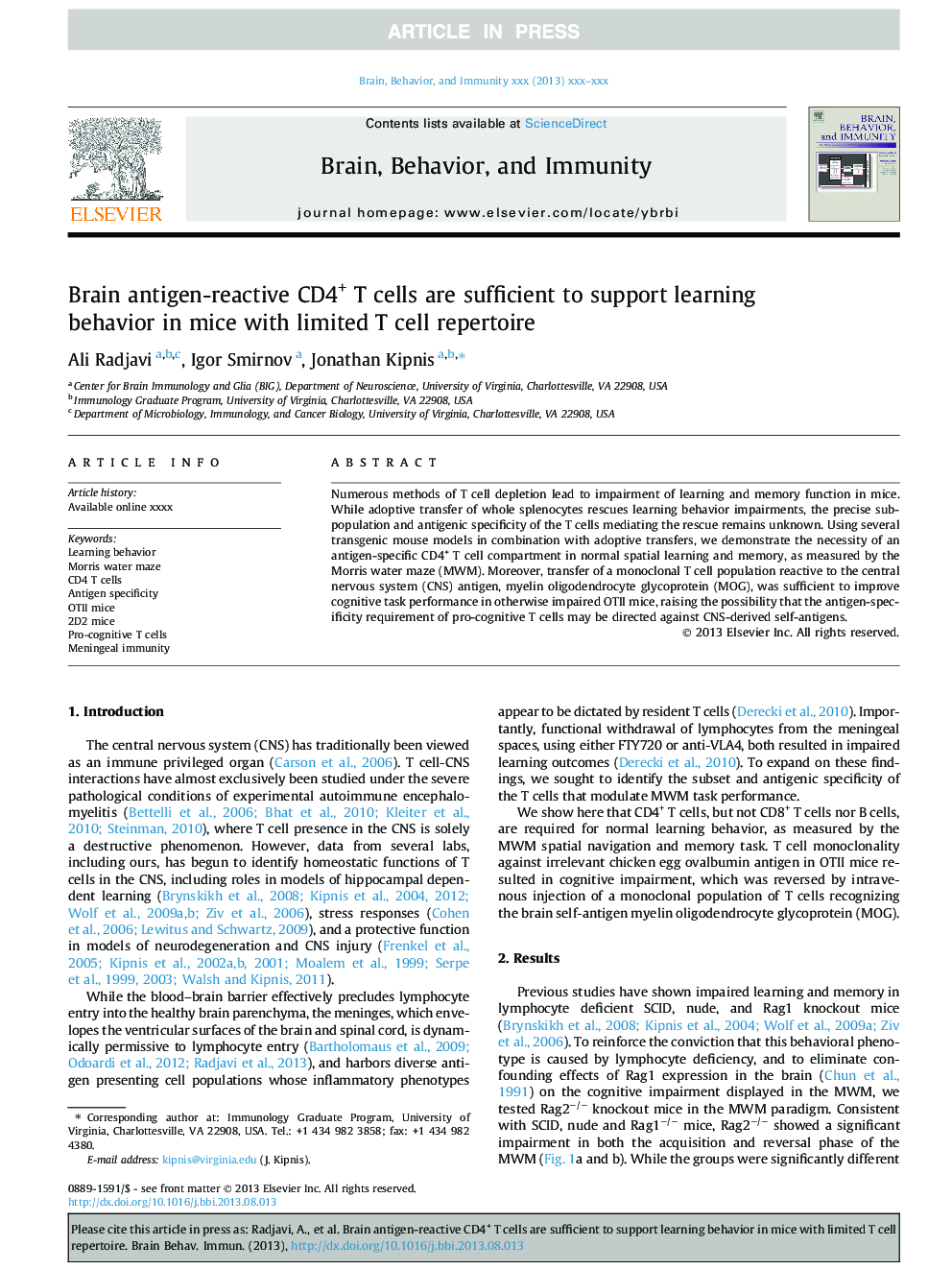| Article ID | Journal | Published Year | Pages | File Type |
|---|---|---|---|---|
| 7281742 | Brain, Behavior, and Immunity | 2014 | 6 Pages |
Abstract
Numerous methods of T cell depletion lead to impairment of learning and memory function in mice. While adoptive transfer of whole splenocytes rescues learning behavior impairments, the precise sub-population and antigenic specificity of the T cells mediating the rescue remains unknown. Using several transgenic mouse models in combination with adoptive transfers, we demonstrate the necessity of an antigen-specific CD4+ T cell compartment in normal spatial learning and memory, as measured by the Morris water maze (MWM). Moreover, transfer of a monoclonal T cell population reactive to the central nervous system (CNS) antigen, myelin oligodendrocyte glycoprotein (MOG), was sufficient to improve cognitive task performance in otherwise impaired OTII mice, raising the possibility that the antigen-specificity requirement of pro-cognitive T cells may be directed against CNS-derived self-antigens.
Related Topics
Life Sciences
Immunology and Microbiology
Immunology
Authors
Ali Radjavi, Igor Smirnov, Jonathan Kipnis,
